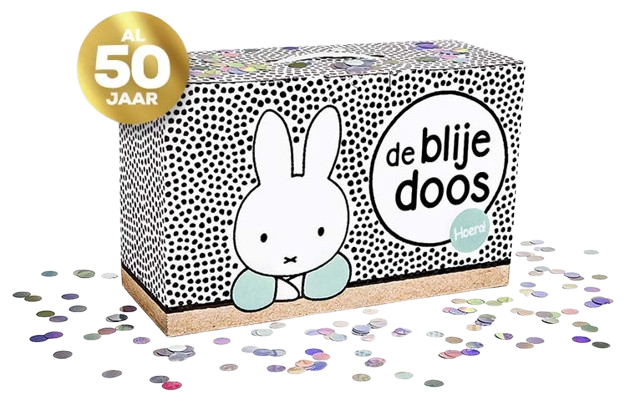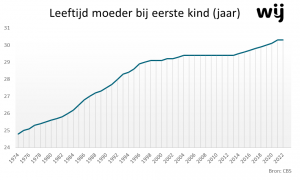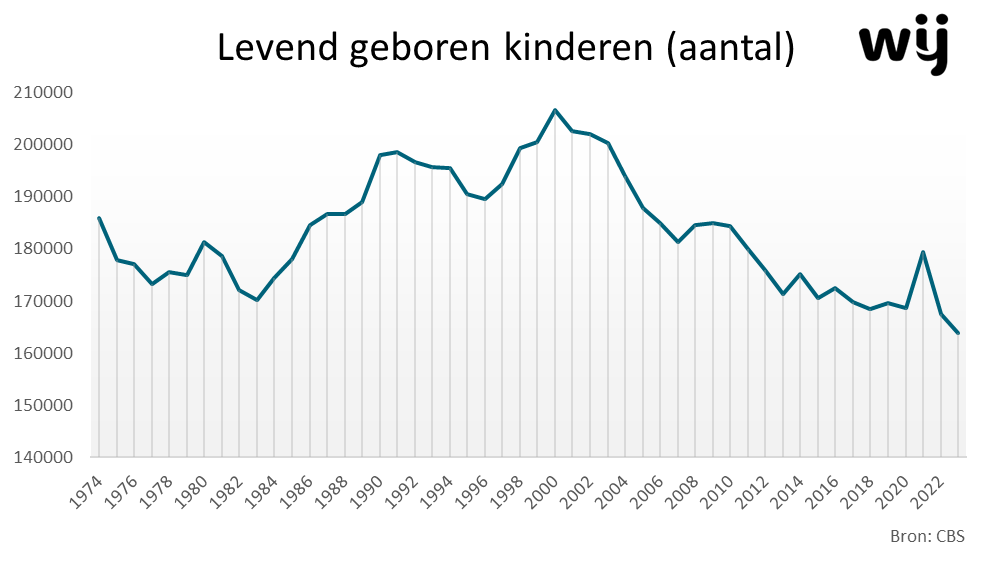News article
de blije doos is celebrating its 50th anniversary!
“Much has remained the same, and much has changed.”
de blije doos from WIJ Special Media was first distributed to pregnant women in 1974, and now, fifty years later, the free gift package is a staple. This will be celebrated from February 14th to 17th at the Nine Months Fair, where the boxes will also be distributed to newly pregnant women.

Approximately 135,000 pregnant women register for de blije doos yearly, representing 80 percent of all pregnant women in the Netherlands. The contents of the gift package changes over the years, but according to Marcel Bakker, director of WIJ Special Media, there are a few constants. “For fifty years, it has contained a pack of Pampers diapers and always includes a product from Prénatal, the baby store where de blije doos can be picked up.”
For fifty years, expectant mothers have been receiving WIJ magazine as a gift with their “blije doos” (Happy Box) until their child is one year old. WIJ is a magazine with personal stories and informative articles about pregnancy, childbirth, and babies. WIJ is published four times a year and has a circulation of 150,000 copies per issue. “We also have the website WIJ.nl, are active on social media, and send email newsletters whose content perfectly matches what a pregnant or new parent wants to know at that specific moment. For example, a weekly update with information about how your baby is developing inside your womb,” says Bakker.
A world of difference
WIJ editor-in-chief Mariska van der Kogel observes a lot has changed for new parents in fifty years. You can tell just from the figures. The age at which women become mothers for the first time has increased significantly—from 24.8 to 30.3 years—and the number of children per family has actually decreased—from 1.77 to 1.49. Almost half of women gave birth at home in 1974; now that’s just under 15 percent.
The risk of a babies dying around birth has decreased significantly, from 11.3 per thousand births to 3.8. “Many more screenings have been added, such as the NIPT (Non-Invasive Prenatal Test) and the 13- and 20-week ultrasound scans,” says Van der Kogel.
The work-care balance has also changed completely over the past fifty years. While almost all women in the 1970s stopped working after the birth of their first child, 71% of mothers now work. We’re seeing more and more fathers are taking on childcare responsibilities.
WIJ wants to provide pregnant women and parents with young children with personalized and reliable information so they can develop optimally as parents. For example, WIJ collaborates with the Stichting Voor Werkende Ouders (Foundation for Working Parents) to make parents’ lives easier. “For example, we contribute to the annual State of the Family survey, which provides politicians with insights into the well-being of families,” says Van der Kogel.
WIJ hopes to continue to be a source of information for parents for the next fifty years. Van der Kogel: “The times, society, and the media are changing, but the uncertainties and challenges that come with young parenthood will always remain.”


************
Note for the press: for more information about the anniversary of de blije doos and interview requests, please contact editor-in-chief Mariska van der Kogel. 06-105 057 08 – mariska.vanderkogel@wij.nl
